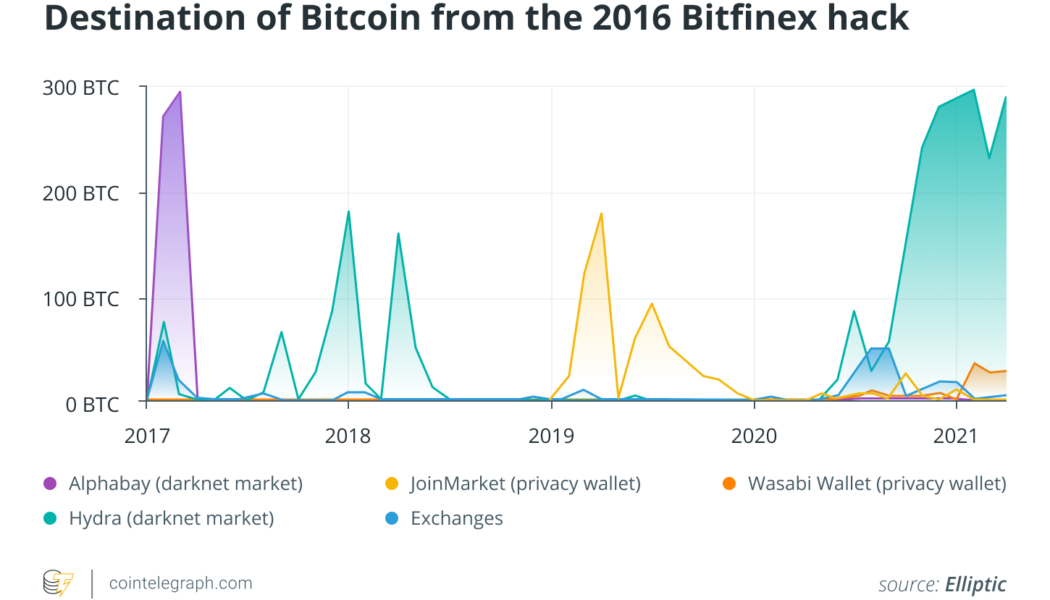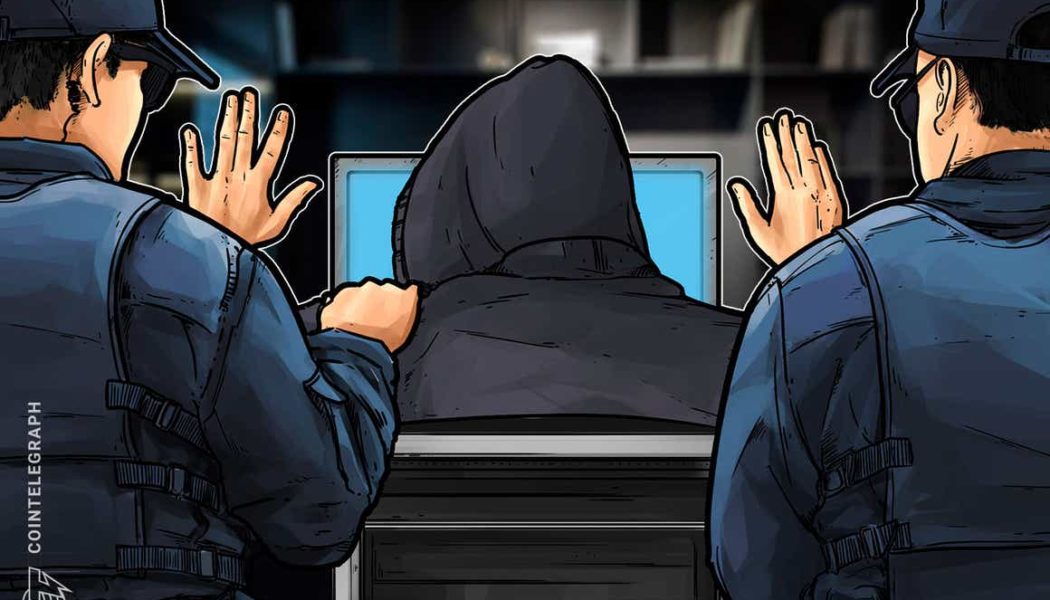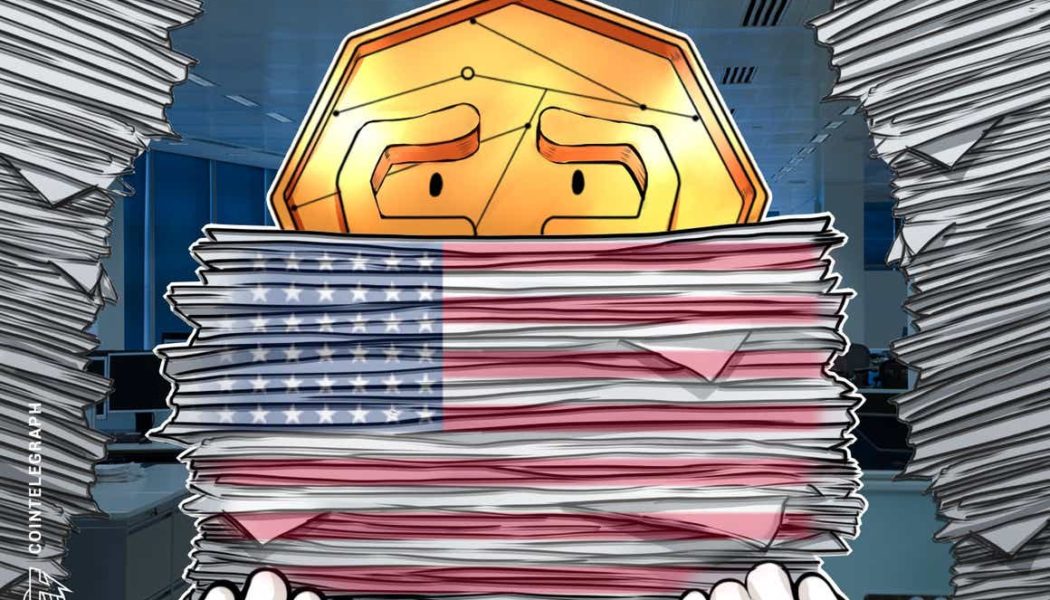Law
Blockchain forensics is the trusted informant in crypto crime scene investigation
The seizure by the U.S. Department of Justice of $3.6 billion worth of Bitcoin (BTC) lost during the 2016 hack of Bitfinex’s cryptocurrency exchange has all the ingredients of a Hollywood film — eye-popping sums, colorful protagonists and crypto cloak-and-dagger — so much so that Netflix has already commissioned a docuseries. But, who are the unsung heroes in this action-packed thriller? Federal investigators from multiple agencies including the new National Cryptocurrency Enforcement Team have painstakingly followed the money trail to assemble the case. The Feds also seized the Colonial Pipeline ransoms paid in crypto, making headlines last year. The Internal Revenue Service (IRS) seized $3.5 billion worth of crypto in 2021 in non-tax investigations, according to the recently releas...
European Parliament postpones crypto bill vote over proof-of-work
The parliament of the European Union is delaying a vote on a framework aimed at regulating cryptocurrencies amid concerns over proof-of-work mining. In a Friday Twitter thread, European Parliament economics committee member Stefan Berger said the government body had canceled a vote on the Markets in Crypto Assets, or MiCA, framework scheduled to take place on Monday. Berger said parliament needed to clarify “the question of proof-of-work” in discussions with stakeholders to ensure a proper legal framework, adding that some might misinterpret the proposal as a ban on crypto. “The discussion about MiCA indicates that individual passages of the draft report can be misinterpreted and understood as a [proof-of-work] ban,” said Berger. “It would be fatal if the EU Parliament sent the wrong signa...
Seizure of Bitfinex funds is a reminder that crypto is no good for money launderers
As public understanding of how digital assets work becomes more nuanced along with the mainstreaming of crypto, the language of Bitcoin’s (BTC) “anonymity” gradually becomes a thing of the past. High-profile law enforcement operations such as the one that recently led to the U.S. government seizing some $3.6 billion worth of crypto are particularly instrumental in driving home the idea that assets whose transaction history is recorded on an open, distributed ledger are better described as “pseudonymous,” and that such a design is not particularly favorable for those wishing to get away with stolen funds. No matter how hard criminals try to obscure the movement of ill-gotten digital money, at some point in the transaction chain they are likely to invoke addresses to which personal details h...
Wyoming’s state stablecoin: Another brick in the wall?
For a state with a small-town feel, Wyoming moves with big-city alacrity when it comes to things crypto. According to the bipartisan bill introduced into its legislature last week, a Wyoming stablecoin could debut before the end of 2022. The announcement caught even Wyoming banker and cryptocurrency champion Caitlin Long by surprise. “Didn’t know it was coming,” tweeted the Avanti Bank CEO. It also raises some questions: Is a stablecoin really needed by Wyoming’s citizens? Is it feasible? Will it upset the state’s commercial banks including its recently chartered special purpose depository institutions (SPDIs) like Avanti which has issued a stablecoin-like product itself? Moreover, is a state-issued stablecoin even constitutional? And, aren’t there enough stablecoins around alr...
Law Decoded: Bitcoin’s censorship resistance capacity enters the spotlight, Feb. 14–21
Amid the barrage of last week’s regulatory news, from rumors of Joe Biden’s upcoming executive order on digital assets to another round of the Russian government’s crypto tug of war, the storyline that was arguably the most consequential for the mainstream narrative on the social effects of crypto has been the one around the Canadian government’s standoff with the Freedom Convoy. The government’s invocation of emergency powers to put down a protest movement — combined with the movement’s financial infrastructure being one of the main attack vectors — has led many observers to appreciate with renewed vigor Bitcoin’s capacity to resist state financial censorship. If a government as “civilized” as Canada’s can arbitrarily cut off a group it doesn’t like from the financial system, then any sta...
Russia’s Finance Ministry introduces digital currency bill, brushes off Central Bank’s objections
Russia’s Ministry of Finance has upped the stakes in its drawn-out showdown against the country’s Central Bank by formally introducing a bill that proposes to regulate digital assets rather than banning them. On Feb. 21, the Ministry introduced a draft of the federal law “On digital currency” to the government. This stage of the legislative process precedes the bill’s introduction to the parliament for consideration. The agency cited the “formation of a legal marketplace for digital currencies, along with determining rules for their circulation and range of participants” as the rationale for the initiative. Emphasizing that the bill does not seek to endow digital currencies with legal tender status, its authors define cryptocurrencies as an investment vehicle. The bill proposes a licensing...
Mining worldwide: Where should crypto miners go in a changing landscape?
One of the main themes among the crypto community in 2021 was China’s aggressive policy toward mining, which led to a complete ban on such activities in September. While mining as a type of financial activity has not gone away and is unlikely to disappear, Chinese cryptocurrency miners had to look for a new place to set up shop. Many of them moved to the United States — the world’s new mining mecca — while some left to Scandinavia and others to nearby Kazakhstan, with its cheap electricity. Mining activities can’t stay under the radar forever, and governments around the world have begun to raise concerns over electricity capacity and power outages. Erik Thedéen, vice-chair of the European Securities and Markets Authority — who also serves as director general of the Swedish Fina...
Clarity pushed back: Russian government fails to forge a consolidated stance on crypto regulation
On Feb. 18, the Russian Ministry of Finance kicked off public consultations on the rules of cryptocurrency issuance and transactions. While a welcome development, it is less than the country’s crypto space had expected to get. Earlier in the week, the government announced that by Feb. 18, a bill containing the finance ministry and central bank’s consolidated position on crypto regulation would be drafted. Updated estimates suggest that it will take at least another month for draft legislation to see the light. The main reason for the delay appears to be the central bank’s renewed resistance, which just several days ago seemed to have been overcome. Here is a roundup of the latest twists in this rocky ride. Round 1: Central bank’s ban proposal On Jan. 20, the Central Bank of Russia (CBR) is...
Tennessee lawmaker introduces bill which would allow state to invest in crypto
Jason Powell, a member of the Tennessee House of Representatives, has introduced a bill proposing counties, municipalities, and the state to invest in cryptocurrencies and nonfungible tokens, or NFTs. According to Tennessee House Bill 2644 introduced on Feb. 2, Powell proposed amending the current state code to add crypto, blockchain, and NFTs to the list of authorized investments for the counties, state, and municipalities to make with idle funds. Lawmakers assigned the bill to the House Finance, Ways, and Means Subcommittee on Feb. 8 for further consideration. The legislation was the second related to crypto and blockchain introduced by Powell. The same day, he asked Tennessee lawmakers to consider forming a study committee aimed at making the state “the most forward thinking and p...
Law Decoded: Tangible wins, new menaces and the global crypto taxation drive, Feb. 1–7
Every global event or major political crisis these days can trigger a digital asset-related conversation. As China welcomes the world’s top athletes to the Beijing 2022 Winter Olympics, showing off ultra-high-tech facilities and sports infrastructure, some United States politicians have raised concerns over the Games’ potential to act as a booster to the digital yuan’s adoption. In neighboring Myanmar, the military government that had overthrown the nation’s elected leadership a year ago is now looking into launching its own digital currency, not to project economic influence but to improve the domestic payments system and the struggling economy more broadly. Below is the concise version of the latest “Law Decoded” newsletter. For the full breakdown of policy developments over the las...
Stealth rulemaking: Is proposed SEC rule with no mention of crypto a threat to DeFi?
On Jan. 26, the United States Securities and Exchange Commission proposed amendments to Rule 3b-16 under the Exchange Act that lacks any mention of digital assets or decentralized finance, which could adversely affect platforms that facilitate crypto transactions. Some cryptocurrency advocates — including SEC Commissioner Hester Peirce — believe that the commission’s extended definition of an exchange could thrust an entire class of crypto entities under the regulator’s jurisdiction, subjecting them to additional registration and reporting burdens. How real is the threat? The proposed change The amendments proposed by the regulator dramatically expand the definition of what an exchange is while eliminating the exemption for systems that merely bring together buyers and sellers of securitie...
America COMPETES Act passes House without ‘disastrous’ provision on crypto
A piece of legislation aimed at addressing supply chain issues to keep the U.S. economy and businesses competitive has passed the House of Representatives — without a provision many in the crypto space had criticized for giving the Treasury Secretary authority to shut down exchanges. In a 222-210 vote on Friday, the House of Representatives passed the America COMPETES Act mostly along party lines. The provision originally proposed by Connecticut Representative Jim Himes would seemingly have allowed the Treasury Secretary to have fewer limits on surveilling financial institutions with suspected transactions connected to money laundering and not open the matter to include public feedback. However, lawmakers modified the wording earlier this week to safeguard restrictions currently under by t...























